“Ukraine must be rebuilt on the principles of honesty and solidarity,” - Yuriy Pidlisny
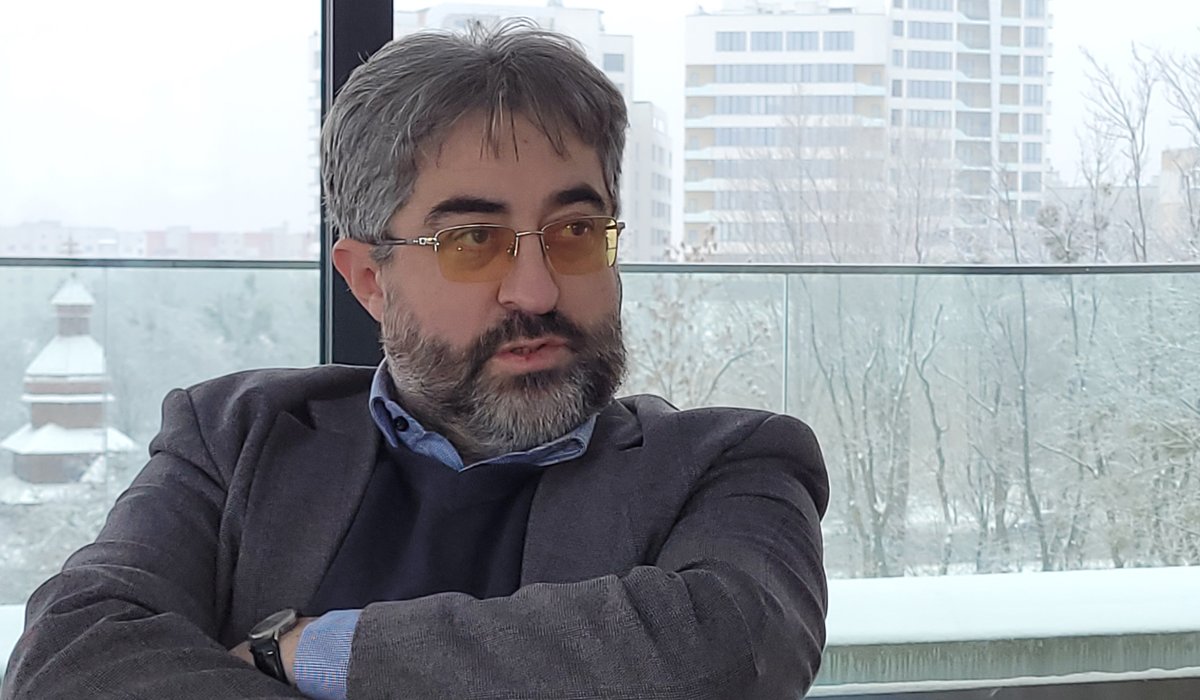
In an interview with RISU, Mr. Pidlisny shared his thoughts on those who will be rebuilding Ukraine and for whom. He also spoke about the foundations a renewed country should adhere to and how everyone can contribute so that the West provides even more aid.
The material was created with the support of the Peace and Development Fund, which promotes the unification of professionals from different faiths to jointly serve God and people through their profession.
A New Ukraine through the Eyes of Students
— Students study politics and economics based on ethical values in your program. How do you talk to them about the war? What kind of questions do they ask?
— Despite the war, we enrolled students in the political science program. They are sharp and intelligent and understand everything perfectly. They all volunteer, which causes problems at the end of the semester: “I volunteered, so I could not study. Can we extend the deadline? Can I have a repass?” I try to be understanding and forthcoming.
Three of my students have joined the Armed Forces of Ukraine. One of them, the son of our first rector, had to defend his thesis last semester. His brother died. Another student was not sent to the front but was assigned to work at the headquarters instead. And one girl went to join an assault brigade, a mortar platoon. Basically, she went to the front line. That’s what my students are like. Two of our teachers are now part of the territorial defense.
Other students see this and participate in various required actions. Everything for the front, everything for victory.
Sometimes students have interesting questions. For example, how to help a relative from the occupied territories surrender if they had no time to escape from home and were mobilized, given weapons, and sent to fight against Ukrainians. Students take such things to heart. They study, enjoying the opportunities Ukraine and UCU provide them, while a relative might be shooting in their direction. This relative is shooting because he has a blocking squad behind him. And no one knows how to surrender in this situation. So, I was recently asked if I had access to anyone who could advise on the matter.
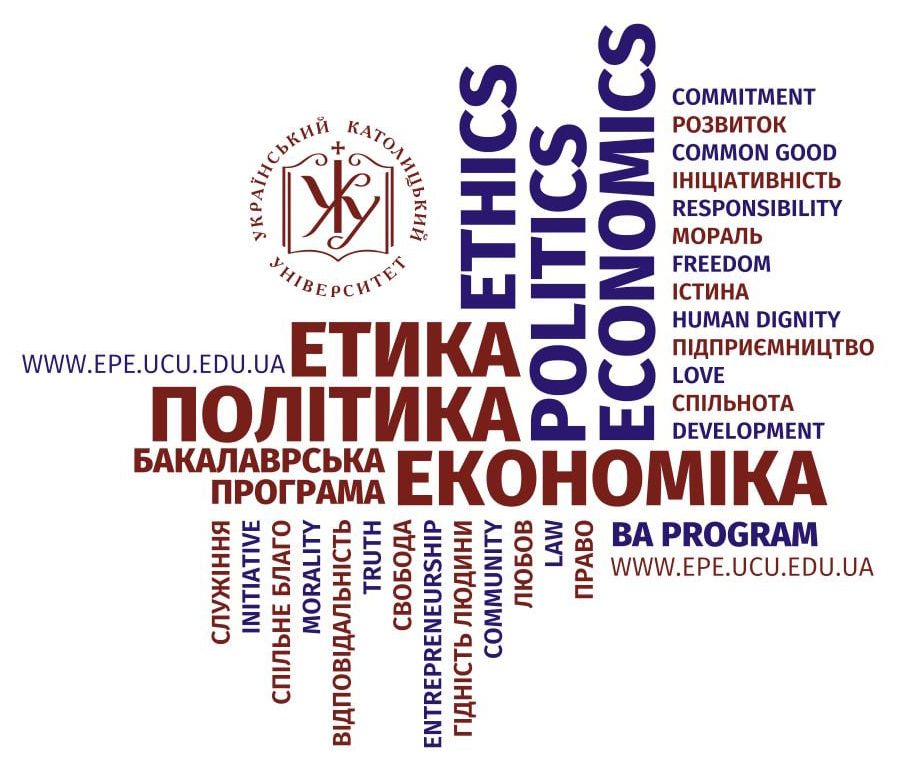
— Was there something surprising in your students’ attitude to the war?
— We have students from different parts of Ukraine. Some of them speak Russian at home. When men from certain military agencies approached me requesting help in operations requiring computer skills and fluency in Russian, many students volunteered. They took part in special information operations. Later, they would come up and ask if there were any similar ways for them to be helpful.
— Did you adjust the curriculum for the students after the full-scale invasion?
— Of course. We would make assignments related to the war and encourage students to volunteer more. We also discussed the topics they encountered while volunteering during the classes. For instance, I teach “Philosophical Ethics and Modern Moral Challenges”. As part of the course, we discussed the moral, religious and metaphysical justification of the war by Russian ideologists and Kirill. We studied their arguments in terms of how valid or invalid the argument might be. I tried to show the students the crux of the matter and why the arguments of the ideologists and the first persons of Russia, including Patriarch Kirill, are neither a religious nor an ethical justification for the war. In fact, we can clearly see the Nazi ideology in them.
Currently, students at the Faculty of Social Sciences are tasked with developing their ideas for the post-war reconstruction of Ukraine, even though the war goes on and we do not know when it will end. It is not about material reconstruction but about forming a new social contract that we should create after our victory.
Students study disciplines related to the fundamental moments of creating a social contract. They study how various conflicts and wars ended in history and how it was possible to reach a new level in the post-war period. This can be clearly seen in European history, i.e. in how the religious wars of the 16th-the first half of the 17th century and the Second World War ended, and the problems that arose after the First World War. Knowing this and seeing the development of civil society in Ukraine (and being an active part of this society as they belong to various public and lay organizations), students find the values and principles that can be used to build Ukraine. There are values and principles inherent to the Ukrainian people which can be traced back to the princedom era. They helped us carry out the Orange Revolution, the Revolution of Dignity. They helped us in the first phase of the war and the new phase - first in replacing the home front support and now in aiding it. First of all, I mean solidarity, as it became the basis of volunteer activity, which allowed us to withstand revolutions and laid the foundations for the Legion of Ukrainian Sich Riflemen, the Ukrainian Insurgent Army, etc. Students understand these values and try to incorporate them into what Ukraine should look like after the war.
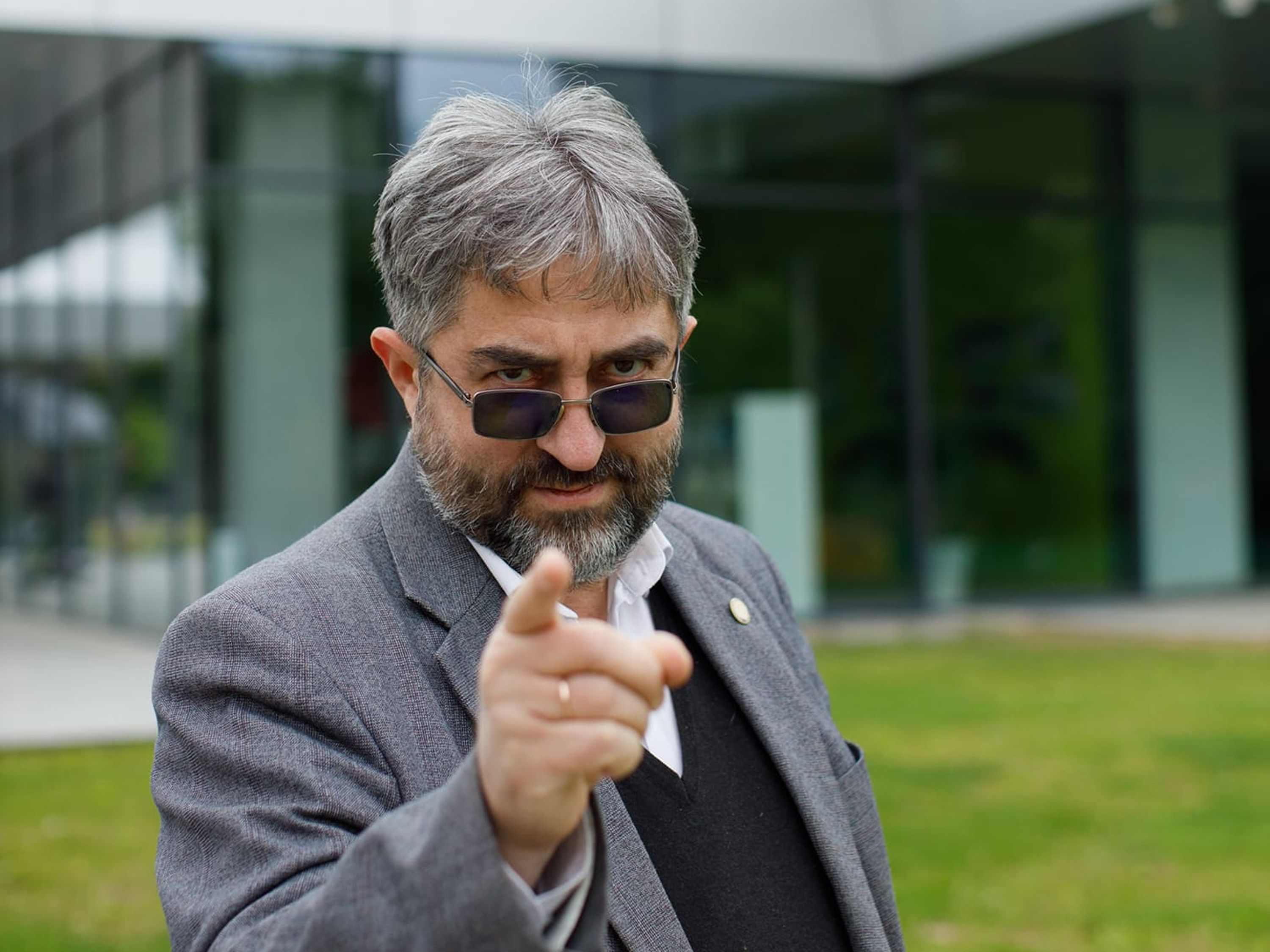
Zero tolerance for corruption is among the principles we discuss with students (they see this principle in their everyday life as it applies at UCU, where everything is honest and transparent). The second principle is the principle of solidarity, which is very important for students. That’s why UCU encourages various types of volunteering to show solidarity with people on the front lines, those in the war zone, and those who were forcibly displaced.
The students want to apply these principles as the basis of a new social contract.
We are also talking about creating the so-called social standards of Ukraine. They relate to the concept and value of human dignity. Why did people leave the country even before the war? If we look at the wages and prices in Ukraine and abroad, there is not much sense in going there to work except for seasonal employment or because there is no opportunity to get a job here. However, many people talk about social standards. People go abroad as there are no problems with placing a child in a kindergarten; one doesn’t need to think about giving a bribe to place a child in an overcrowded group; in a hospital, you are not sold medicines through a pharmacy kiosk, financed from the budget, which should be issued free of charge; buses and trams arrive promptly at 2:23 p.m. as per the schedule. Having no access to these things violates human dignity. That’s why people leave.
The social contract refers to building relationships among ourselves on a horizontal level and those with various institutions of power, i.e. local self-government and state power.
Denazification of Russia
— Who and what do you rely on when drawing conclusions and summarizing the course of the war? What information do you use?
— Regarding the progress and making predictions about the war, one should listen to experts. We can hear about the fighting from those on the front as they witness it directly. However, no matter how cynical it sounds, the perspective of a fighter on the front line is limited. They cannot fully assess everything that’s happening. Yet their perspective reveals the soldiers’ attitude toward each other and that of commanders toward soldiers. It also shows the level of our planning and home front support. As for everything else, you should listen to the experts.
I read the materials of Ukrainian and foreign policy institutes. All these materials have one common problem - access to information. War is a secret thing in its planning. Most think tanks rely on materials from open sources. We can listen to what intelligence agencies do when giving us preprocessed information. The summary of the General Staff is also preprocessed.
Therefore, all reliable think tanks try to collect as much information as possible, information that is not available to the general public.
My colleague and I belong to the “European Security Architecture” policy institute. Current and retired members of national parliaments, the European Parliament, national governments, generals, and academic circles participate in its meetings. These people are informed. Back in May, one of the generals told me that modern wars do not require a numerical advantage in troops or weapons if the weapons are accurate and the system of commanding the troops and the motivation of the soldiers is at a high level. It allows smaller forces to defeat larger ones, which happened in our country in the Kharkiv and Kherson directions. These things were in the estimations of generals who participated in the planning and implementation of military operations, in particular in Kosovo.
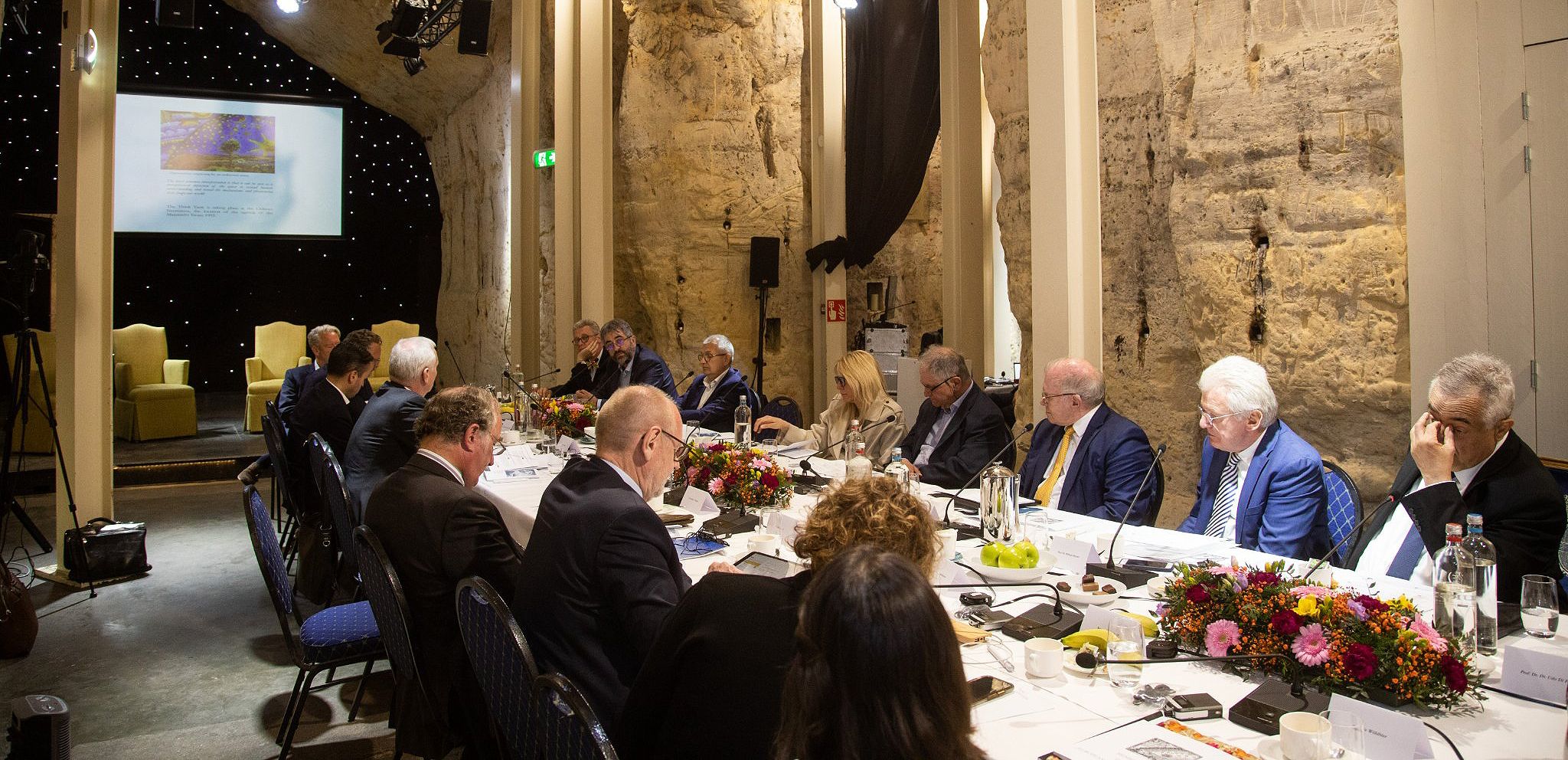
— What is the current biggest problem in our society?
— War halts any development. Let’s look at the macroeconomic indicators of December 2021. In Kyiv, the average salary was almost $900. The average salary in Ukraine was supposed to exceed $650 this year. This means there was development despite all the difficulties and “stealing”. Now we are at war, and people want it all to end. However, judging from what I see and hear from people I communicate with, Ukrainians seem ready to do anything, not just to end this war, but at least to establish a lasting peace for the next generations.
— What hardships may await us after the war is over?
— Look, Israel protects its borders. It won the previous wars but continues to be shelled across the border. The same fate might await Ukraine, for Russia isn’t going anywhere. When we talk about peace after victory, there is always this question: “How do we define the word “peace”?” Should Russia maintain its military potential? I believe Russia’s military capabilities must be destroyed, at least to the extent that Russia cannot repeat its massive February attack. Ideally, Russia should be reduced to the level of historical Moscovia. The world community, mainly the West, should take such a step to help the indigenous peoples inhabiting Russia decide on their own independence. For us, it would be a more solid guarantee of peace, which is impossible when Russia remains an empire. In the West, most analysts and politicians look at this approach favorably, though they won’t say it for the record. They have but two great fears. First, the uncontrolled collapse of Russia could lead to the spread of nuclear weapons worldwide. Second, they understand China’s ambitions. What will happen if China takes all of Siberia? And there is such a possibility, though it will not necessarily occur through military control.
— When will we win? What needs to happen for us to say that we’ve won?
— To achieve victory, we must have enough Western weapons. For me, victory means a 200-300 km demilitarized zone on Russian territory along the Ukrainian border, with no concentration of Russian troops and the movement of their forces visible at all times. And secondly, it means the liquidation of the Russian military potential. Russia must be “dismembered” lest the Russian threat and attacks will persist.
We need the analogy of the denazification of Germany. It isn’t easy in our realities. The allies occupied Germany and managed to impose their rules. And while it won’t be possible to occupy Russia (which, most likely, be the case as there is no one to do it), the issue of denazification and demoralization of Russia arises. If this is not done, they will continue to try to create a fifth column in Ukraine.
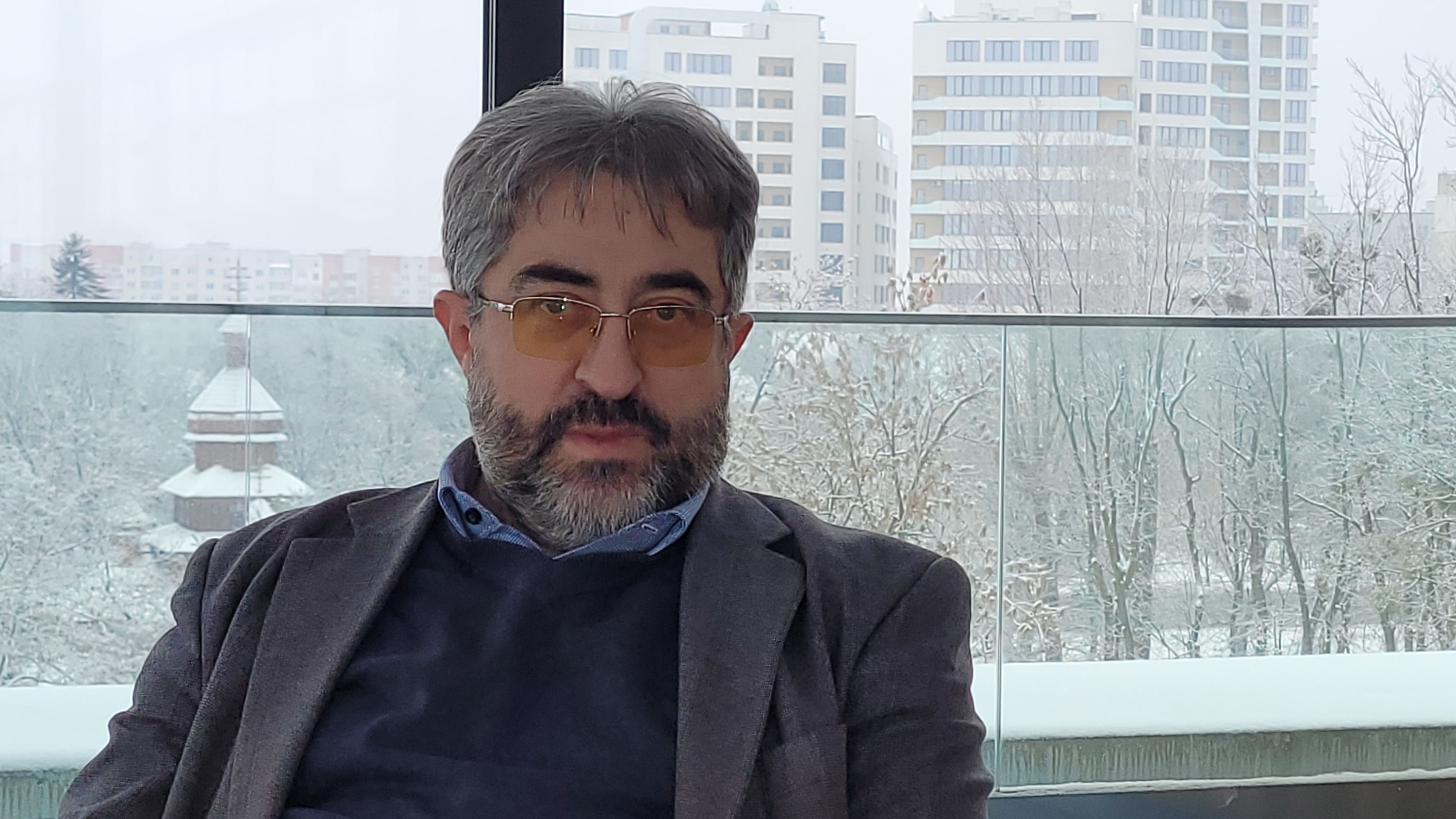
Knowing the History and Creating New Standards
— What are the non-military strategies of our victory?
— One of the points is Ukraine’s information policy. When we were traveling along the borders around the perimeter of Ukraine, FM radio and Ukrainian mobile communication would often be weaker than the signal from abroad. Russian TV channels worked great in the eastern regions, with no one blocking them. So now, the information policy should zero on the fact that the “Russian world” is taboo.
The second issue is education in Ukraine. In our country, the de-communization process has begun. We see monuments to Lenin being demolished, and street names changed. For instance, a young child asks their mother while walking in the street, “Whose monument is this?”, “Why is this street called like this?” Preserving Russian or communist names creates the “Russian world”.
It is also necessary to eliminate all agents of the “Russian world”, particularly the Moscow Orthodox Church.
We need to raise our awareness regarding the fact that we make rules here, and it is up to us to create standards. Many people choose to live in the West because of high social standards. But who created those standards? We must change our thinking and understand that it is entirely up to us, and we are to blame if we lack something.
— What and in which spheres do we need to change to achieve victory and secure a high-quality future for our country?
— For instance, in education, history, as a discipline, should clearly indicate the enemy. One anecdote says there are two main subjects: military training to know how to shoot and history to know who to shoot. This is a priority. We do not have a future if we do not shape our history.
Recently, there were unpleasant discussions on the topic: “Is Ukraine the legal successor of the Ukrainian People’s Republic with Kyiv as its capital or the Ukrainian SSR with the capital in Kharkiv?” This type of narrative is pernicious.
We need proper history books. It is necessary to find new authors, for rewriting the old ones is tedious and unproductive.
In addition, we need to learn to write the histories of neighboring countries to understand what Russia, Poland, Belarus, Moldova, and Hungary are.
— How has the attitude of world authorities and other countries towards Ukraine changed over the past ten months?
— Ukraine became topical, and many people have discovered Ukraine. Many have changed their attitude towards our country. At the beginning of the invasion, the German Minister of Finance responded to our ambassador’s request for help, saying, “What help are you talking about? In a matter of hours, a new geopolitical reality will come to be.” Such was the position of many at that time. This example shows that they did not fully understand Ukraine. They thought in terms of realpolitik, that is when the strong decide the fate of the weak. Ukraine was considered weak and was thought to be in Russia’s “fairway”. Then Germany’s position did a 180, as they began to supply us with lethal weapons.
A fundamental evolution took place in the Pope’s views. From altogether rejecting the supply of weapons to Ukraine to refusing to talk to Kirill, the Pontiff now accepts the need to supply weapons as they are required for self-defense.
Western countries started reconsidering the definitions of peace, war, and justice. Since the beginning of the war, I have communicated with the UN academic and religious circles. They are representatives of the third generation that does not know war. They are all for peace, pacifism, and peaceful protests. And now, they have reconsidered their attitude to weapons and started investing in their armed forces.
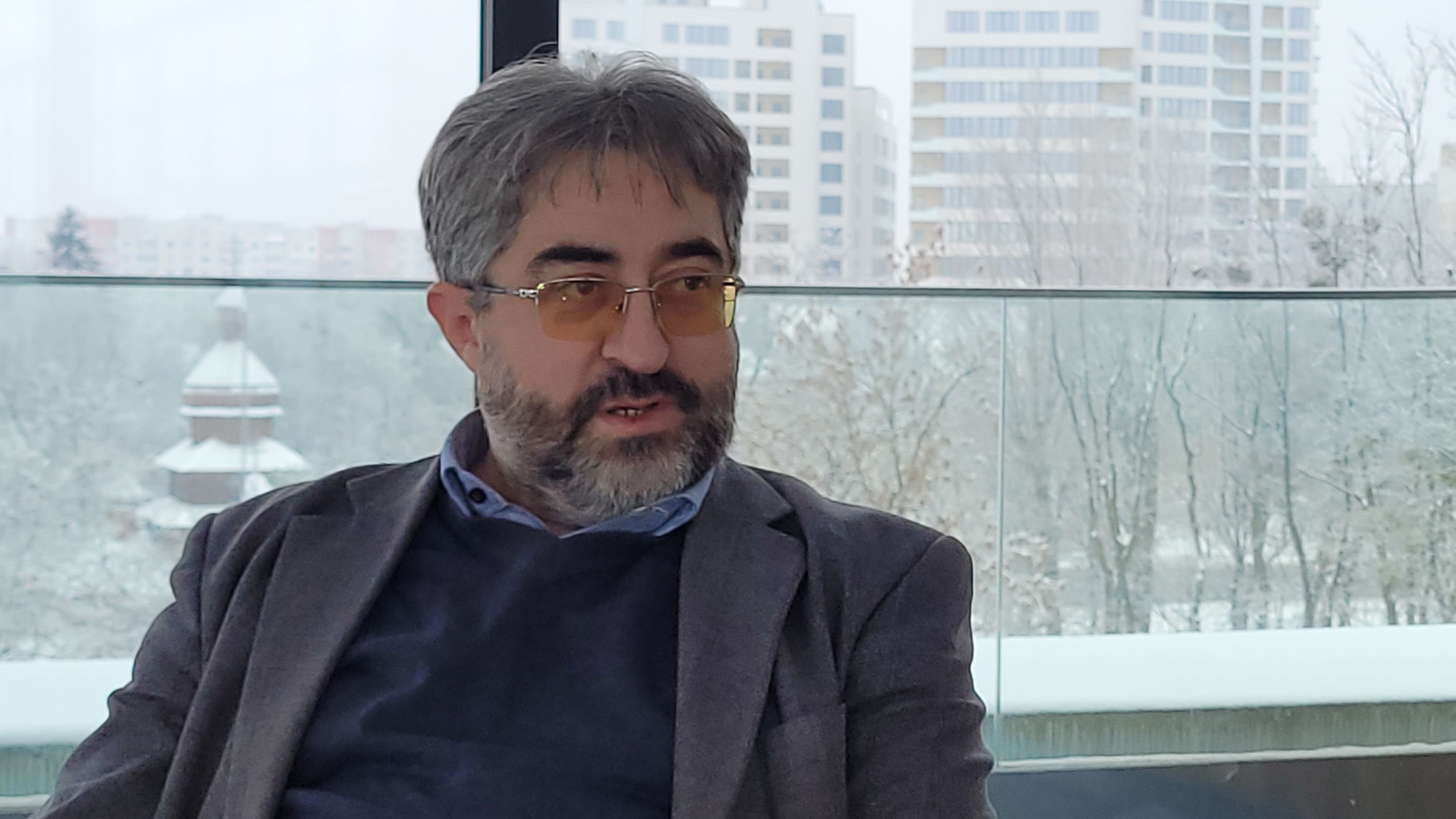
Rebuilding: Who and for Whom?
— You say that communicating with Ukrainian and foreign politicians and other influential people shaping public opinion is important, as it allows us to get the necessary support. We need to share as many details about the events in Ukraine as possible for these people to see the most accurate picture. They need to know about our problems, needs, and state of things. What does it look like in the context of rebuilding the country?
— We must constantly inform our contacts abroad about our needs. We must do this because liberal democracies depend on public opinion. Influential people like priests, members of the European Parliament, or professors shape public opinion. Why does Ukraine still receive aid from European countries? Such is public opinion. A former member of the Italian parliament told me they would provide aid as long as the public said so. Therefore, we need to work on forming public opinion in those countries. In particular, Zelensky’s speeches in front of various parliaments shape public opinion. However, governments do not always fully listen to everything said. For example, in Israel, the public is entirely on the Ukrainian side. The authorities are aware of their vulnerable position and consider what aid they can provide and what they cannot. They provided us with excellent medical care.
— How long might the post-war reconstruction last?
— I’ve heard different estimates. Rebuilding the main infrastructure may take 3-4 years. But what are we to do with cities that have been razed to the ground? Should we rebuild them or build anew? These are entirely different terms. And the most annoying and crucial question: who will rebuild the country and for whom?
Due to various labor migrations, we never knew the exact population of Ukraine. The last census counted 46 million Ukrainians. Then it became 43, 40, and 37 million. Since the beginning of the war, 8.2 million people have left Ukraine and gone to the West. Yet we do not know how many were forced to leave for the East. Some say it is about a million, and others - three million.
We do not know how many people will want to stay abroad after the war and how many men will leave to join their wives and children.
It is a fact that this “West” will invest hundreds of billions of dollars in Ukraine. But who will do the rebuilding? Perhaps it will be Serbs, Tajiks, and Vietnamese who may want to settle here. Will it be the case that post-war Ukraine will attract representatives of those countries where material, financial and social standards are even lower than in Ukraine?
The economy means consumption. Therefore, the question is who will be consuming. Many countries with bad demographics or a top-heavy population pyramid invite migrants. This happened in Germany, but Angela Merkel declared that migration motivated by the idea of multiculturalism has failed.
In addition to cities, we will have to restore transport networks, railway stations, airports, and ports. No one will rebuild enterprises for us. No one will invest money in a competitor, so restoring economic infrastructure will be our concern.
We will have to think about improving our electrical network and our energy industry. We will need to reconsider energy consumption and diversification of energy sources. After the war, road construction will be the primary task. Transport networks are essential, as they are the driver of the economy. In addition, we need to switch to the European track standard. Although many say it is costly and generally unlikely to happen, this will protect us from Russia’s attacks, as the delivery of weapons by echelons and trains is far more efficient than cars.
As for the non-material reconstruction, we need to take care of new principles for a new social contract, the unwritten rules everyone professes.
— What else does the concept of “rebuilding” Ukraine include? It’s not only about houses and roads, right?
— We must create a new social contract. An American once told me we would be fine if we adhered to the following scheme: idea — mass — cash. Without the idea and people to implement it, there will be no money. The same thing with rebuilding. Without a plan for reconstruction, we won’t have money. After World War II, the question of rebuilding West Germany arose. At first, there was an idea of what should happen, and big money came under the Marshall Plan. With a plan like the Marshall Plan adopted in Ukraine, donors will meticulously choose those in the country able to implement it. We will become a colony of sorts, but this will be a positive change. Donors will give money to those they are most likely to choose, following the principle “these people can rule the country, and these cannot”. This is benign external management.
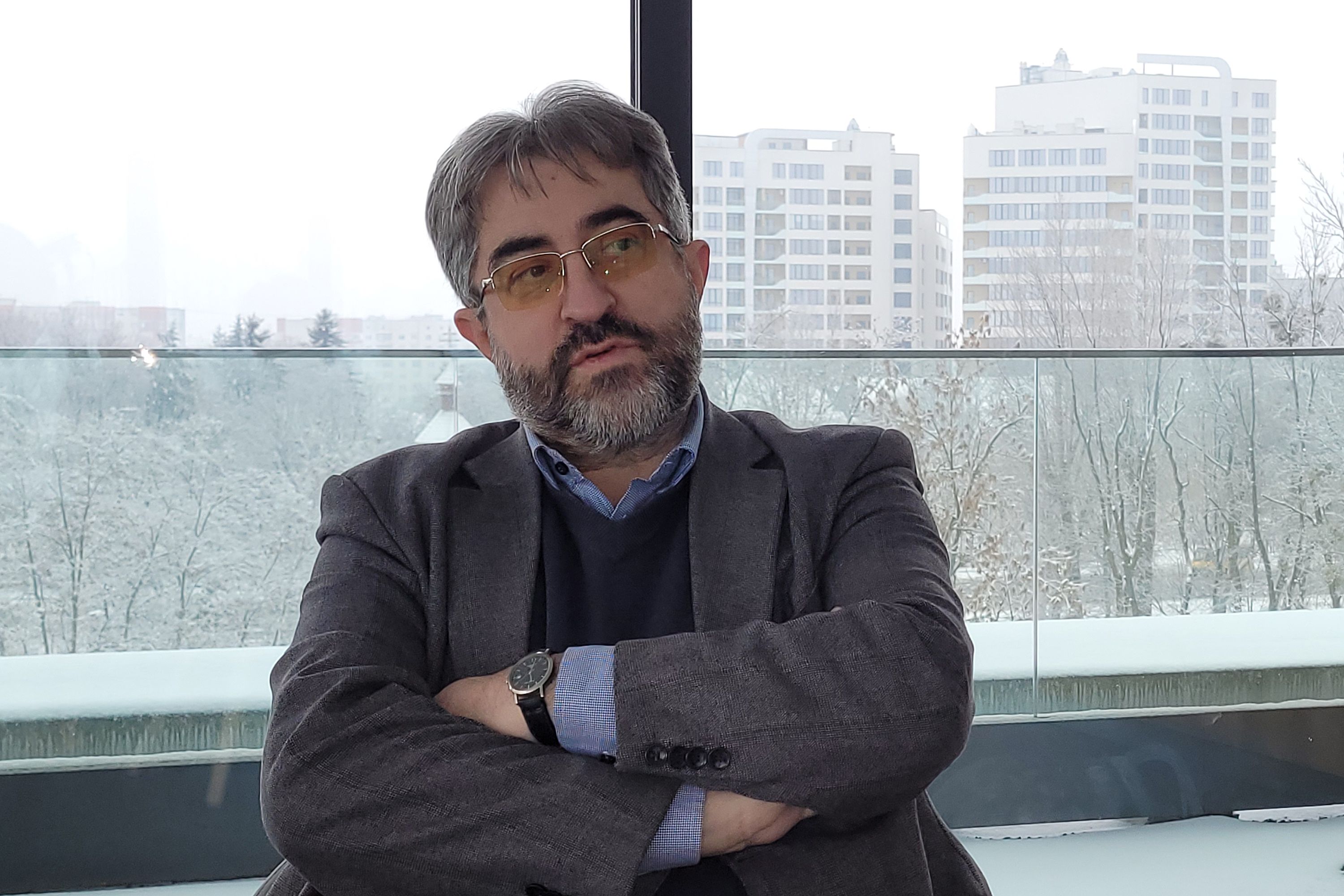
Medicines after the War
— How will our society change after the war and after rebuilding the country? Will we overcome corruption, the “it doesn’t concern me” principle, and other issues?
— Some of the issues will persist, but I think we will eradicate them over time. We have already gotten rid of lots of the Soviet heritage. And we will get rid of many more things in the rebuilding process. Yes, there will be those looking to enrich themselves, but there will also be those focusing on public interests. But we can be sure about one thing — everything will change.
Let’s have a look at the Revolution of Dignity. On the one hand, there was a demand from civil society, and on the other, help from our external partners, who provided additional pressure. It’s like in the case of the Kyiv District Administrative Court liquidation. There was a demand from society and external pressure, making it became possible. The same will happen after the war. A certain critical mass will appear, there will be demands and aid for reconstruction from donors, and so we will gradually get rid of those negative traits of ours.
— Along with the reconstruction, the whole country will have to treat injuries as we are all traumatized to varying degrees. How should this treatment be conducted?
— As a university student, I studied with an Afghanistan veteran with a keen sense of justice. He did not understand why he, a combat scout, needed to pass physical education tests. So he harshly explained to the head of the department that he had to receive his grade “automatically”, for he had experience running through minefields. Then he could not live without war and joined the French Foreign Legion.
There will be many people used to war. Fighters, used to earning good money at the front, will receive many times less and have to adapt to a peaceful life. The general question is whether they will have a job.
The loss of brothers-in-arms and loved ones permanently scars the psyche. Therefore, Ukrainians will have severe PTSD. As a result, there will be violence on the streets, in work environments, and in families. We can use the experience of countries that are constantly at war, such as Israel and the USA. We already receive help from them. We have involved their specialists, i.e. doctors, and public and religious organizations, since 2014. We will need even more support. We are already training specialists who will work with war traumas. In particular, future priests are learning to do this.
— Will the new lustration, the real one, be completed?
— It is up to us. The new social contract should provide for lustration.
There are already many questions for those currently in power. These questions are not raised because of the war, for the last thing we need now are great social upheavals. Nonetheless, everything is being recorded. Some people supported the “Russian world”, and some worked to undermine our state. But, as they have some influence, they once again revolve around the highest officials. Without lustration, we are doomed to a terrible scenario.
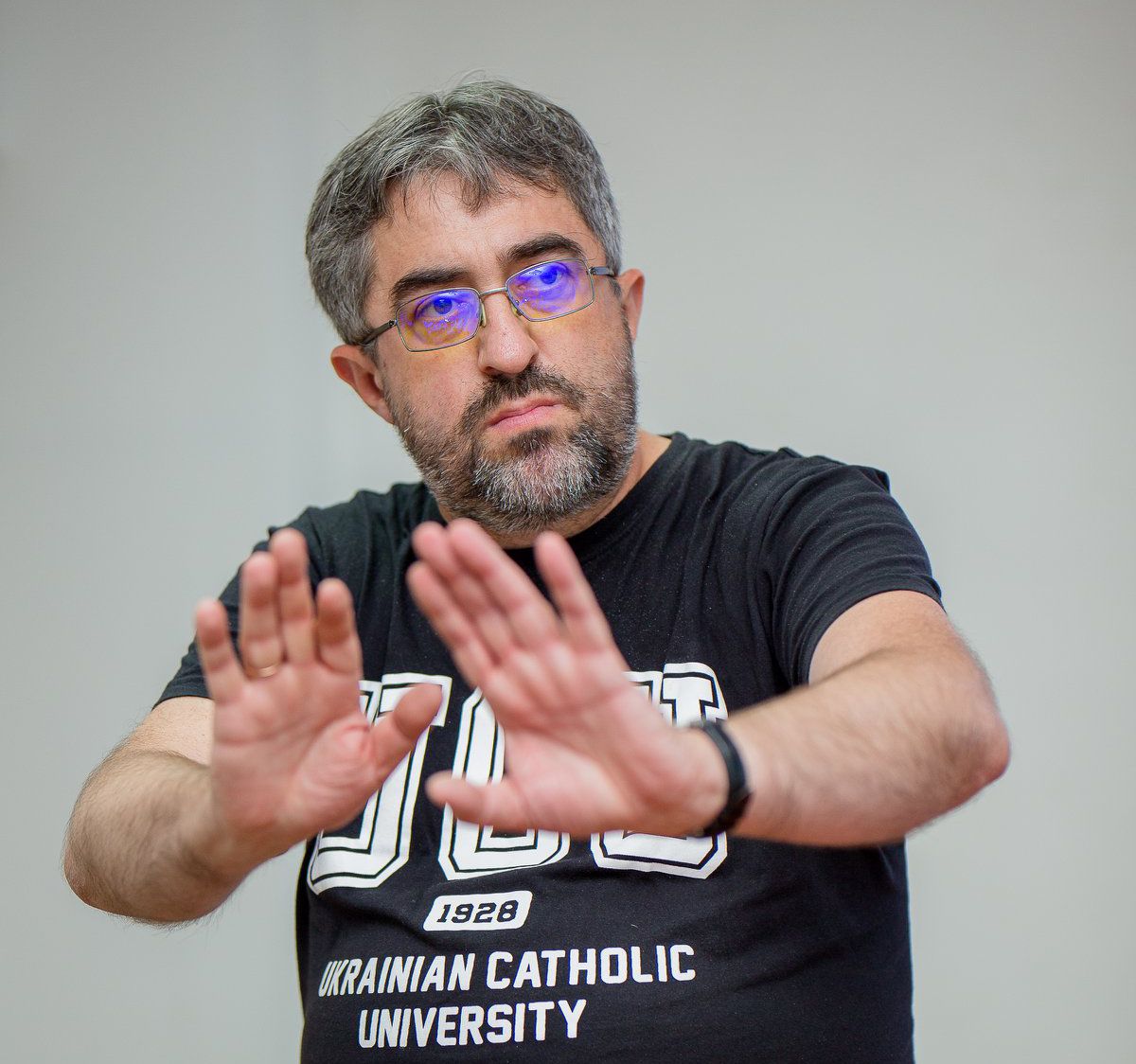
Being a Christian at Work
— What does it mean to be in one’s place during the war and everyday life?
— Look at our Armed Forces. They do their job well. We, all those at the home front, should follow their example. So, if I make shoes well, I must make them even better.
After the war, we must eliminate the constitutional provision that Ukraine is a welfare state, as social benefits kill any good life and development. This does not mean we should deprive the needy of social assistance. But sociality must be eliminated as a principle of the state’s existence.
— What does it mean to be a Christian at one’s workplace? Or being at work and in a church are different aspects?
— This is schizophrenia, offered by the modern liberal atheistic environment. I cannot be a Christian in a church and an ordinary citizen outside it. If I am a Christian, I am a Christian at my desk, in a church, on the street, and in transport. I am a Christian wherever I go. I must understand that I am in communion with God wherever I am. I communicate with God at the Liturgy, at the market, in the store, at the university and on the bus.
— Are believers better workers than those who do not believe in God?
— Usually, yes. You see, believers understand they have responsibilities toward God. It is so not because of fear but because of their awareness of the right way.
— In your opinion, what are the most successful Ukrainian reforms in recent years?
— External Testing. Patrol police. “Cleaning” the banking system.
— If you could introduce a specific reform or law, what would it be?
— I would continue reforming school education. Nowadays, the Ministry of Education regulates everything. I would make the ministry responsible only for the state educational standard, which should not include any ideology, and ensure the functioning of the “money follows the child” formula. Creating the school is up to parents, private structures, public organizations or local self-government. The things that will be taught there from the point of view of ideology are up to the parents.
I would also implement the approach proposed by the teaching of the Catholic Church, which is subsidiarity, which assumes that the maximum of powers should be in the hands of society and the minimum in the hands of the state. This means reducing the bureaucratic state apparatus.
— What has the war changed for you physically and morally?
— I realized that more needs to be done for the state to function properly. I am uncomfortable with the fact that due to some health problems, I cannot be out there at the front.
— What fiction and popular science literature would you recommend to Ukrainians?
— I do not read anything but specialized literature now. Raju Roger Scruton’s “Conservatism: An Invitation to the Great Tradition”.
— Continue the sentence: “Never again...”
— … make empty promises to anyone.
— Continue the sentence: “I can’t wait...”
— … to see real reforms.
— Is there someone among your students who can one day lead the country?
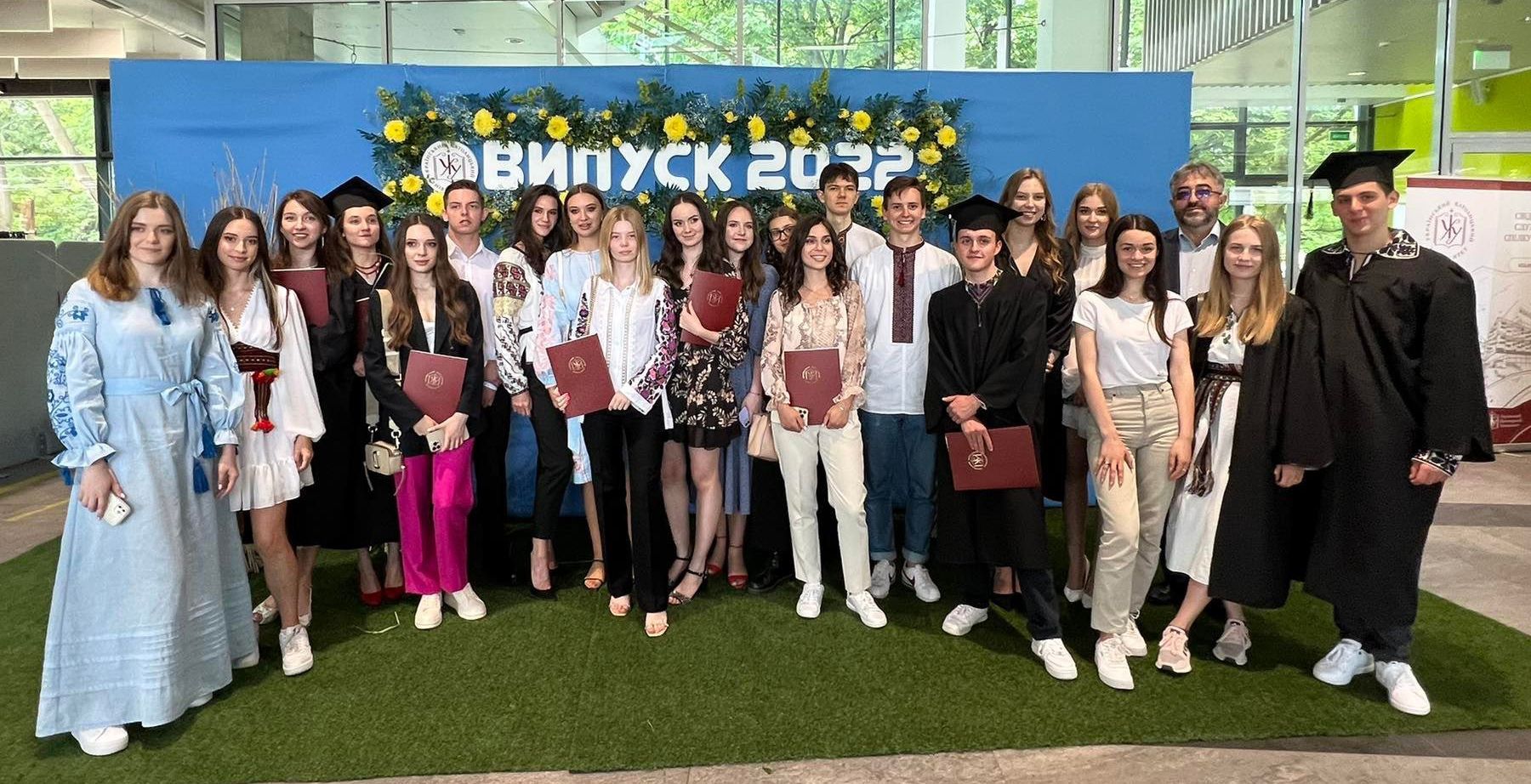
— Among my students, I see those who can become part of the parliament. And after that, the way to becoming the President is virtually open. My Ethics-Politics-Economics program was created based on the model of the Oxford Philosophy-Politics-Economics program. I believe that if our program continues to be successful, we will be known as the Oxford program that prepared hundreds of parliament members, prime ministers and presidents...
##DONATE_TEXT_BLOCK##




